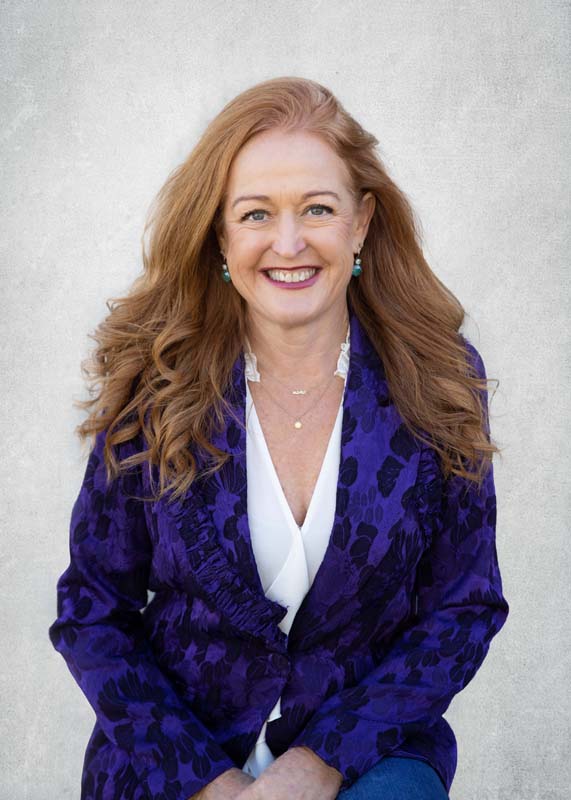
David Porter talks with new Tauranga deputy mayor Jen Scoular, who has an extensive background in the country’s kiwifruit and avocado sectors. She also has significant experience in Europe as both a businesswoman and a New Zealand diplomat.
New Tauranga deputy mayor Jen Scoular aims to draw upon her extensive career in business here and internationally in her efforts to help the city progress.
 Scoular was appointed deputy by mayor Mahé Drysdale after the new council elections earlier this year. These followed four years of the city being administered by a central government-appointed Commission.
Scoular was appointed deputy by mayor Mahé Drysdale after the new council elections earlier this year. These followed four years of the city being administered by a central government-appointed Commission.
Drysdale told BoP PLENTY magazine in an interview on Scoular’s appointment that he believed she would make a great deputy. And while he acknowledged that appointing the only woman elected to council as his deputy made political sense, he added: “She very much earned that position through her skills.”
Scoular’s attributes include having been raised locally in Tauranga, where she and her husband raised two daughters, and where she currently lives. She also worked in Tauranga for many years in senior roles in the kiwifruit and avocado industries.
She also has extensive experience abroad in the UK and Europe, including a stint as a diplomatic and trade representative based in Germany.
“We recognise there has been progress in New Zealand, but there’s probably been 25 years of underinvestment in Tauranga,” she told the BoP PLENTY magazine.
“The Commission did make moves to improve the city, but they did that in a manner that is different from what we will do,” she said.
Need for big changes
“In Tauranga, we’ve inherited the need for big changes. We will definitely need to review some of what’s already been done. Some of the changes we’re probably best to carry on with and make sure there are better outcomes. But we also want to make sure there’s more transparency.”
Scoular also noted fellow councillors’ views that the larger Council infrastructure needed to be more accountable, and that staffing costs were a big element in local rates.
“If the council structure is serving Tauranga well, then let’s understand that and make sure it’s being done efficiently,” she said.
I want to be able to envisage improvements in Tauranga across a number of issues, but it’s going to cost. So we need to make sure those costs are seen as added value to the people of Tauranga, right now and for their kids and grandchildren.
Avocado sector transformation
Scoular stepped down as CEO of New Zealand Avocado in late 2023 after 12 and a half years, having led a transformation of the avocado sector, taking industry value from $82 million to $231 million. Her career culminated with her hosting of the successful 10th World Avocado Congress in New Zealand.
She also previously served a term as treasurer with Tauranga-headquartered Zespri, having initially qualified at Canterbury University with an accounting degree.
“I take money management seriously and would expect the working council to plan and execute well, and be accountable to deliver value to Tauranga ratepayers,” she said in a pre-election statement.
Scoular is also Chair of House of Science, an entity founded by Chris Duggan in Tauranga, which develops and supplies science experiment kits to 700 primary schools around NZ.
Phenomenal learnings
Speaking of her term working for the New Zealand Government in Europe, Scoular said:
“My roles as a diplomat and trade commissioner were very hard, but the learnings were phenomenal.”
She learned that the aim of successfully securing change was to slowly get people to move in one direction.
“Even small steps forward are still going forward,” she said. “It also opened my eyes to how the rest of the world looked and the differences in cultures. There are differences in how people understand things and that’s very useful in understanding how the world works.”
Scoular said she believed the council and the city generally needed to be more open about the challenges Tauranga faced and talk about the opportunity to mitigate some of those challenges.
Challenges ahead
These included for example, the traditional commitment to building three bedroomed houses on patches of land.
“That’s what people think they want, but they are actually more expensive to build,” she said. “We’ve got to get that alternative infrastructure here and look at other cities around the world which are actually already doing that.”
Scoular also sees the need to improve Tauranga’s social infrastructure to meet the needs of the city’s ethnic and age groups. She also believes Tauranga needs central government to come to the party and support the city’s development with government funding. Well-connected in Tauranga and Wellington, she plans to utilise those connections to advocate for more central funding being allocated to Tauranga.
Scoular noted that, with the (usually) three-year system of central government politics, policies could change by the week.
“We need to be agile (and responsive),” she said.
“I want to be able to envisage improvements in Tauranga across a number of issues, but it’s going to cost. So we need to make sure those costs are seen as added value to the people of Tauranga, right now and for their kids and grandchildren.”
Looking back at her time at NZ Avocado, which had been without a CEO for six months when she joined, Scoular said the sector was in the doldrums at the time. She worked across a wide group of stakeholders to achieve change.
“We got people engaged and were really transparent,” she said.
Under her tenure the sector worked collectively towards an agreed strategy, drove efficiencies and made really strong steps forward.
“I would encourage a similar change of behaviour for Tauranga,” she said.
Tauranga City Council’s activities can be found on their website www.tauranga.govt.nz

